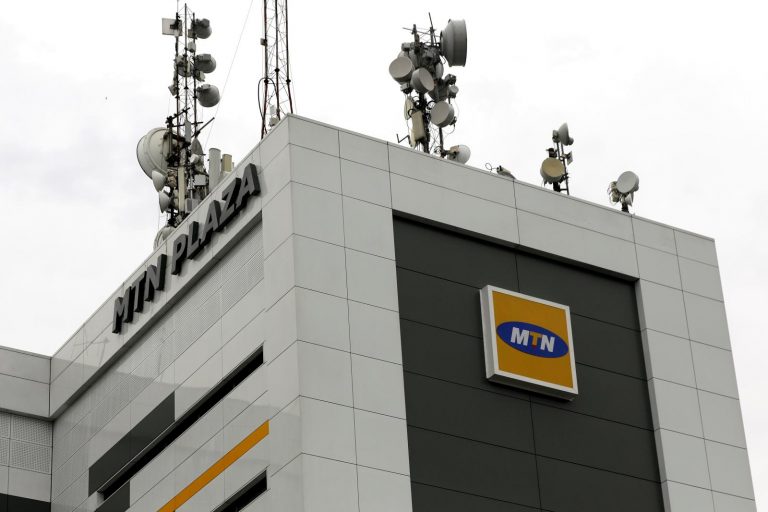
MoMo Payment Service Bank Limited (MPSBL), a subsidiary of MTN Nigeria, has sued 18 Nigerian banks over N23 billion worth of transactions involving their customers – a case some analysts said may change the controversial norm in the Nigerian banking industry.
MoMo said the N23 billion belonging to its customers was erroneously transferred into about 8,000 bank accounts in 700,000 transactions – and it is asking the Federal High Court to order the banks to return the money to the owners.
MPSBL, through its legal counsel, Lotanna Okoli, is also asking the court to provide information about the customers who received the erroneous fund transfer as required under the CBN Act.
Tekedia Mini-MBA edition 14 (June 3 – Sept 2, 2024) begins registrations; get massive discounts with early registration here.
Tekedia AI in Business Masterclass opens registrations here.
Join Tekedia Capital Syndicate and invest in Africa’s finest startups here.
Under the Central Bank of Nigeria Regulation on Instant (Inter-Bank) Electronic Funds Transfer Services, made pursuant to sections 2(D), 33(1)6) and 47(2) of the CBN Act 2007, banks are under obligation to refund any money that is paid in error and provide information about the recipient.
The banks involved in the legal tussle are: Access Bank, Ecobank, Fidelity Bank, First Bank, First City Monument Bank, Guaranty Trust Bank, Heritage Bank, Polaris Bank, Providus Bank, StanbicIBTC, Standard Chartered, Sterling Bank, Suntrust Bank, Union Bank, United Bank for Africa, Unity Bank, Wema Bank and Zenith Bank.
The Nation reporting on the matter, quoted MPSL’s CEO Anthony Usoro Anthony, as saying in a supporting affidavit that MoMo suffered “a system exploitation” on May 24, 2022, resulting in the transactions being processed erroneously going into wrong accounts.
According to Anthony, MPSBL had shut down the service as soon as it became aware of the error, to limit the impact and triggered engagements with the defendants (the 18 banks) through the Nigeria Inter-Bank Settlement System (NIBSS) for the commencement of recovery activities from the accounts of the various beneficiaries in the various banks.
“We were able, through system checks, to confirm the banks and accounts into which the various sums of money were transferred into.
“We were also able to confirm how much was paid into each bank account in total. The said list of accounts which received the funds was made available to the respective banks as a preliminary step to mitigate the applicant’s losses.
“The transfers were due to the fact that the plaintiff suffered a system exploitation which led to the said debits.
“There is no transaction between the plaintiff and the recipient account holders that warranted the transfer of the funds to those account,” he said.
In addition, Anthony explained that his company was forced to sue due to the affected banks’ insistence that they needed to be ordered by the court before they could act.
“The defendant banks have requested an order of court mandating the defendant banks to reverse the credits made into their customers’ accounts before the defendants can do so. “
“The plaintiff is entitled to a return of its money and has demanded the return of the money into its settlement account in the name MOMO PSB settlement account number: 2041379385 held in First Bank Plc, Samuel Asabia House, 35 Marina, Lagos.
“It is the understanding of the plaintiff that prior to the defendant banks being informed of the fact that the credits into their customer accounts were unauthorized that some withdrawal transactions had already been carried out by some of the customers.
“This has necessitated the application for information regarding these customers and the banks and accounts to which they transferred the said funds in order to enable the plaintiff to trace the funds to those banks.
“By virtue of the provisions of the CBN Regulation on Instant (Inter-Bank) Electronic Funds Transfer Services, made pursuant to sections 2(D), 33(1)6) And 47(2) of the CBN Act 2007 the plaintiff is entitled to a return of its money and the provision of the information which it requires from the defendants,” he said.
MoMo PSB is praying the court to grant the following reliefs:
- A declaration that the deposits of an aggregate sum of N22,300,000,000.00 erroneously transferred by the plaintiff to the accounts of the customers of the defendant banks, having been done in error, belong to the plaintiff and not the customers of the defendant banks.
-
An order directing the defendant banks to each, individually, account for the sums available in their customers’ accounts and the sums which have been removed by the customers and are no longer available.
-
An order directing the defendants banks to immediately return the aggregate sum of N22,300,000,000.00, less those funds that are no longer available, to the plaintiffs settlement account in the name MOMO PSB settlement account number: 2041379385 at First Bank Plc Samuel Asabia House 35 Marina, Lagos, from where the funds originated.
-
An order directing the defendant banks to release all information, including account name information in respect of the accounts from which the plaintiff’s funds have been transferred to third parties, including the destination accounts and the banks in which they are held to assist in the tracing and recovery of those funds.
In reaction, Nigerians said this development demonstrates what an average Nigerian bank customer goes through in situations like this, when a financial transaction goes wrong – most customers lose their money.
Nigeria’s push for cashless financial inclusion is garnering momentum as the CBN approves more digital-based financial services, including PSB. This means matters like this involving Nigerian banks will continue to be experienced. Thus, the central bank has been repeatedly called upon to enact policies that will change the status quo, paving way for a trusted financial inclusion drive in the country.



